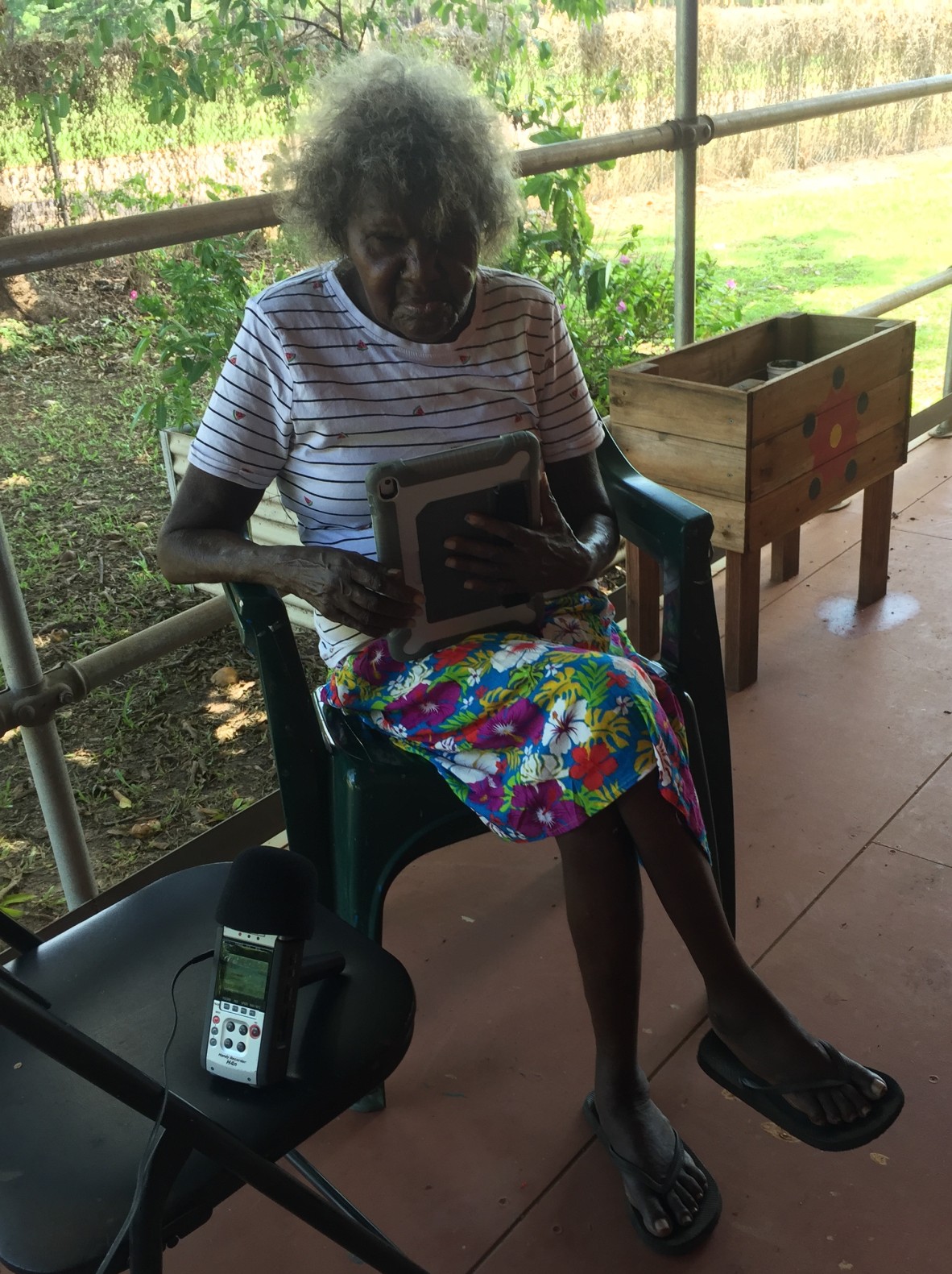Wik Mungkan Indigenous Knowledge Centre
By Indigenous Services | 22 November 2022
The Wik Mungkan Indigenous Knowledge Centre (IKC) was the sixth IKC to open on 22 November 2002 in partnership between Aurukun Shire Council (ASC) and State Library. ASC has operated the IKC for 20 years with periods of closure for various reasons. The IKC currently offers library services as well as a location for the Aurukun Flexi Learning Centre. This year, 13 students are enrolled in the Flexi Learning Centre, which focuses on culturally based learning, including Wik language classes.
Aurukun is known as part of the Wik Nation. The location of Aurukun has the Wik Mungkan Tribe as Traditional Custodians and is known as a strong Aboriginal community. Aurukun is the last Aboriginal community in Queensland who have a traditional language (Wik Mungkan) as a thriving and strong first language, with more than 1200 hundred fluent speakers from children to Elders. Many cultural-based programs, incorporating the five Wik Language Groups have been facilitated from the IKC. This includes, the Kaap Thonam: Woyan-Min Biocultural Project App (the Biocultural Project).
The Biocultural Project is led by Perry Yunkaporta, Wik Elder and Apelech Clan Songman and Traditional Owner and includes Noel Waterman, Aurukun IKC Coordinator and Gabe Waterman, Wik and Kugu Art Centre Manager. Engaging the community, they developed the app ‘Kaap Thonam, a Wik Seasons Calendar’, which teaches the important knowledge of Aurukun’s seven seasons. Perry Yunkaporta has been working on the Biocultural Project at the Wik Mungkan IKC in Aurukun for several years, contributing his rich linguistic expertise and cultural knowledge in leading learning on country activities with students from the local school.
A particular focus of the Biocultural Project has been the seasonal indicators and the Wik traditional calendar, which is found on country and tells people of seasonal changes, food availability and natural cycles - all in the traditional Wik Mungkan language (and to a lesser degree Wik Alkan and Wik Ngatan), working with other Elders who all share their traditional knowledge. The project is ongoing and the digital documentation of it, offers students opportunities to develop digital skills in video making, cultural recording and maintenance. A YouTube channel for the Biocultural Project can be viewed below.
Kaap Thonam - Wik Seasons Calendar
Across 2019/2020, to celebrate the 2019 International Year of Indigenous Languages (IYIL) the State Library developed an exhibition Spoken, to celebrate the traditional languages of First Nations groups and communities across Queensland. As one of Queensland and Australia’s few thriving languages, input from the Wik Mugnkan people was included in the exhibition. Take a look at Spoken, Wik Mungkan content, https://www.slq.qld.gov.au/spoken
Other digital projects within the community includes Deadly Digital Communities (DDC) and Tech Savvy Seniors (TSS). Aurukun’s resident linguist Louise Ashmore has assisted seniors and Elders at Aurukun with accessing the Aurukun Shire Council’s Keeping Culture Archive as part of the Tech Savvy Seniors and Deadly Digital Communities projects, which are funded through the State Library of Queensland. Elders and Language Workers record digital stories in their first languages and gain skills in digital device usage such as emailing, recording, and viewing of digital resources and using search engines.
Exploring the collection
If you’d like to explore some of State Library’s collection items relating to Aurukun, we have a few suggestions in the links below:
A collection of images from Brain Cassey from the Aak Puul Ngantam Cape York Cattle Muster photographs.
This is a practitioners’ chapter, focusing on outstations in the Aurukun region of western Cape York Peninsula, and based on our experience spanning nearly four decades.
A collective body of evidence is accumulating indicating that the Family Responsibilities Commission ('FRC'), which has been operating in the Indigenous community of Aurukun in Cape York Queensland since mid- 2008, has been accepted as a legitimate form of authority by community members and has laid the foundation for social change.
In 2002, the first Indigenous Knowledge Centres (IKCs) were developed in partnership with then Aboriginal Community and Island Councils across Queensland. Seven IKCs were opened in 2002 with many more to follow over the years.
This year thirteen Aboriginal and Torres Strait Islander Shire and Regional Councils will celebrate the role their IKC/s play in their communities, as libraries, meeting places, hubs and keeping places.

Comments
Your email address will not be published.
We welcome relevant, respectful comments.
